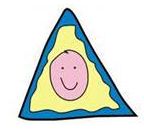Contact us anytime if you would like more information.
Cloud 9 Children’s Foundation Brochures
The Diagnostic Process – For autistic spectrum disorders including Asperger’s Syndrome >> Download
Accessing Funded Support – funding available for children and teenagers with Asperger’s Syndrome >> Download
School Support – services available for children with Asperger’s Syndrome >> Download
Guide to Specialists – a brief description of specialists that a child with Asperger’s Syndrome may encounter >> Download
Should you tell your child about their diagnosis?
By Sue Larkey: International Author, Autism Spectrum Specialist, Teacher
I regularly get asked whether students should be told they have Autism, Aspergers, ADHD, etc. I believe telling children about their ASD helps them understand and actually increases their participation and engagement.
Many parents before diagnosis experience criticism that their parenting skills are the cause of their children’s unusual behaviour. Often when the child is finally diagnosed the parents experience enormous relief that they are not the cause, rather there is an explanation called Autism/Asperger/ADHD, etc. Parents talk about no longer feeling like a bad parent or failures, rather they feel empowered to access strategies and understanding. I would suggest that in the same way parents feel relief, so to do children with ASD and ADHD once they understand their diagnosis. In fact feedback from adults and kids about knowing their diagnosis is they too experience enormous relief.
Of course, some people may disagree with this view, because they believe “labeling” can be used inappropriately. While this can be true HOW the diagnosis is explained, may go a long way to addressing this legitimate concern. The Dr. Stephen Shore YouTube video “Should you tell your child?” not only answers concerns of parents and schools, but also gives an easy 4-step approach to sharing diagnosis.
Dr. Stephen Shore: Should you tell your child about his/her autism diagnosis?
This fantastic post on YouTube is great to watch. Dr Stephen Shore (who himself was diagnosed as a child with Atypical Development with strong autistic tendencies).
Dr Stephen Shore believes not telling kids can have a negative effect on self esteem as they already notice their differences they just don’t know “what it is!”
He answers a range of questions including: When to tell? Will they use as an excuse? How to explain to siblings?
Should you tell your child about his/her autism diagnosis?
Dr Stephen Shore gives a ‘4 Step Approach’, which is summarised below:
4 STEP APPROACH
1. Talk about strengths and challenges.
2. Lining up strengths and challenges and seeing how strength can accommodate challenge.
3. Non Judgmental Comparison: Looking at other peoples strengths and challenges and how they use their strengths.
4. Revealing Diagnosis. Explain Scientists and Doctors have done studies, these characteristics have been given a name called Autism /Aspergers.
Note: This is actually not telling them something they don’t already know. You are giving a framework of understanding.
